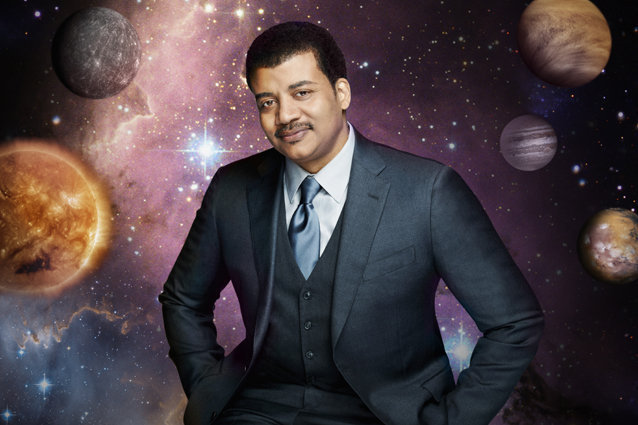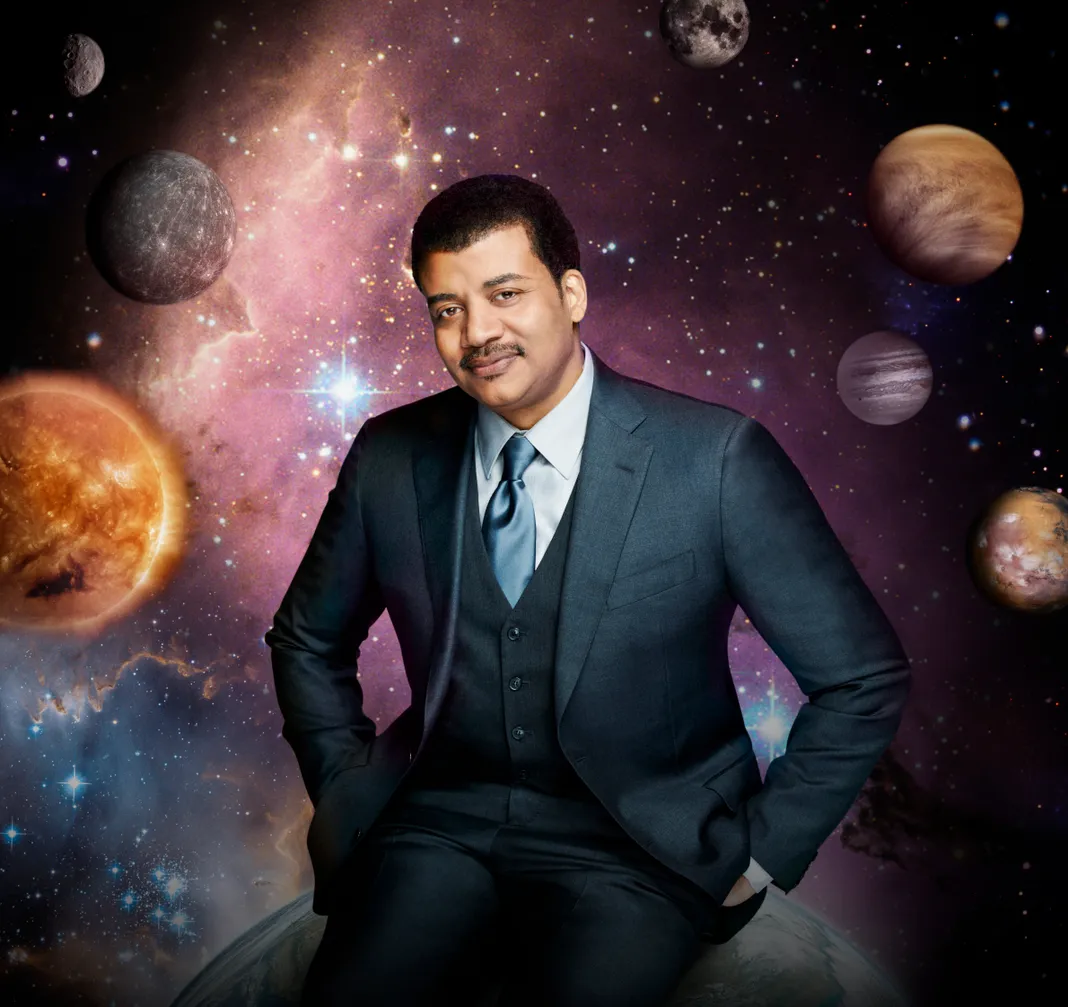 FOX Broadcasting Co.
FOX Broadcasting Co.
On the one hand, we’re thrilled to live in a world where the most talked about new show on television is also the smartest: Fox’s Cosmos reboot significantly enhances Carl Sagan‘s original production with digital effects and updated information, thereby introducing important scientific discoveries to a new generation of television viewers. Neil deGrasse Tyson possesses the ability to explain complex scientific concepts in a comprehensible manner, and his charisma and enthusiasm render the show entertaining as a result. For many curious viewers, in fact, Cosmos represents the best of both worlds, as it successfully merges education with entertainment. On the other hand, we do have to wonder if there’s danger in placing so many eggs in the basket of educational TV. Can programs like Cosmos sufficiently substitute for classroom education, or do they merely complement more traditional pedagogical practices?
This question similarly applies to documentary films and Ted Talks. If an individual were to only watch educational programs, can the knowledge they gain from such programs suffice, or should they still enroll in classes, read textbooks, and engage in discussions with teachers and peers? There isn’t a simple answer to this question, as the concept of “education” is amorphous and difficult to define, but there are perhaps a number of possible conclusions we can draw.
First, we must consider the fact that an education is never complete, and there are always new discoveries to be made and new perspectives to understand. A program like Cosmos may introduce the viewer to science, but the viewer should always keep in mind that Cosmos isn’t a definitive scientific lecture. They would benefit from watching other science-related programs, taking numerous science courses, and reading a number of different textbooks. With each subsequent lesson, the goal is that the individual gains more knowledge on a subject while simultaneously leaving more unanswered questions that can be investigated in the next lesson. Therefore, you can watch the Ted Talk below about sleep cycles of the brain and learn something useful about this subject, but you shouldn’t consider the Ted Talk the end-all-be-all of knowledge about circadian neuroscience.
The same applies to a classroom education as well. A big problem teachers that encounter on a daily basis is the lack of enthusiasm students display for certain subjects. Especially in middle school and high school, students are often bored by classroom lectures that consist of homework discussion, PowerPoint lectures, and group work. Moreover, whenever teachers decide to supplement their lesson plans with educational programs, they typically screen the most boring documentaries imaginable that make no attempt to entertain the viewer. Filmmaker Quentin Tarantino describes these programs as “historical with a capital H.” There are a number of reasons for this, but in general, there’s a consensus that education and entertainment shouldn’t mix, and school districts ultimately decide that text books and PowerPoint lectures are more “substantial” than educational programs like Cosmos. While these traditional pedagogical practices are certainly important, a student would also benefit from watching Cosmos to consider a different point of view.
So while Cosmos and similar entertaining educational programs shouldn’t replace a traditional classroom education, teachers and school districts need to understand that these programs can help their students gain a more complete education. Instead of selecting one or the other as “better” or more “substantial,” we should realize that both approaches are necessary and important. On Monday, a teacher should have students read a textbook and take notes, and on Tuesday, a teacher should screen an entertaining documentary or interesting Ted Talk that covers what the student read in a more captivating manner.
The pursuit of knowledge is a work in progress that can never be completed, after all, and by reminding students that they should always seek out new avenues to explore, society as a whole benefits by being smarter and more curious.


